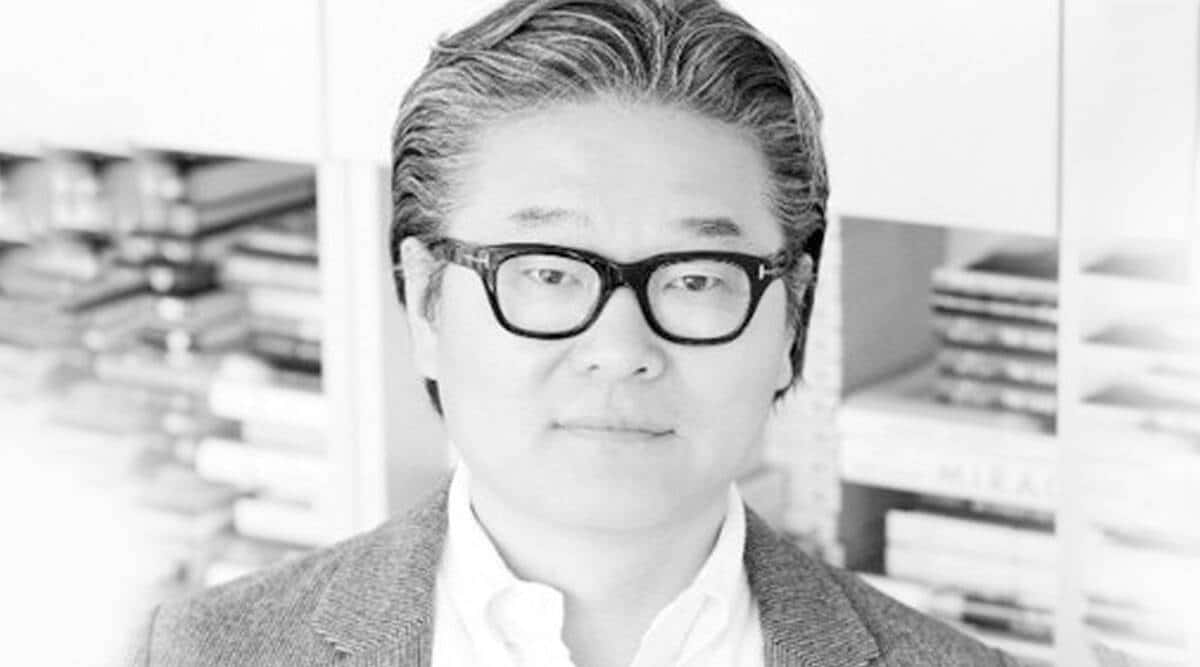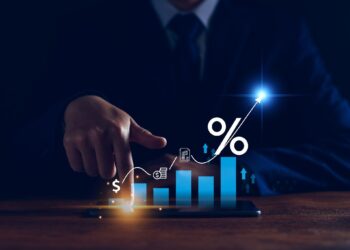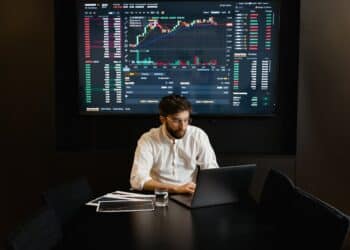Until recently, Bill Hwang was the owner of Wall Street’s most enormous — and perhaps least-known — fortunes. Then his good fortune ran out.
Hwang, a 57-year-old veteran investor, managed $10 billion through his private investment firm, Archegos Capital Management. He borrowed billions of dollars from Wall Street banks to build enormous positions in a few American and Chinese stocks.

By mid-March, Hwang had amassed a stake in ViacomCBS worth $20 billion, potentially making him the company’s single largest institutional shareholder. However, few people were aware of his overall exposure because the securities were mainly owned in sophisticated financial transactions developed by banks, known as derivatives.
That changed in late March when ViacomCBS’s stock plummeted and the lenders demanded payment. As Archegos failed to compensate, the company’s properties were confiscated and sold, resulting in one of the worst investment bank failures since the 2008 financial crisis.
Hwang’s fortune disappeared nearly instantly. It’s a storey as old as Wall Street itself, where the perfect mix of ambition, savvy, and timing will lead to huge gains — only to collapse in a moment when the market conditions shift.
According to Charles Geisst, a Wall Street historian, “the entire affair is reflective of the lax legislative climate over the last few years.” “In what has to be the finest example of shadow banking, Archegos was able to shield its identity from regulators by manipulating by banks.”
The collapse of Hwang’s company had repercussions. Two of his bank lenders have revealed losses totalling billions of dollars. ViacomCBS’ stock price has fallen by half in the last week. According to two people familiar with the matter, the Securities and Exchange Commission has opened a preliminary investigation into Archegos, and market watchers are calling for greater regulation of family offices like Hwang’s — affluent people’s private investment funds estimated to be worth several trillion dollars. Others want the pricing for the kind of derivatives offered to Archegos to be more transparent.
For this post, Hwang declined to comment.
His is a classic rags-to-riches American tale. Hwang was born in South Korea and came to Las Vegas as a high school student in 1982. His first job was as a cook at a McDonald’s on the Strip, where he spoke no English. His father, a priest, died within a year. He and his mother relocated to Los Angeles, where he studied economics at UCLA, but the enthusiasm of nearby Santa Monica, Hollywood, and Beverly Hills had him busy.
“I still blame the people who put UCLA in such a good neighbourhood,” he said in a 2019 speech to congregants at Pledge International Fellowship, a church in Flushing, Queens, New York City. “To be honest, I couldn’t go to school too much.”
He graduated — barely, he said — and went on to Carnegie Mellon University in Pittsburgh to earn a master’s degree in business administration. He then spent about six years in New York working for a South Korean financial services company before landing a lucrative job as an investment advisor for Julian Robertson, a well-known stock trader. The Tiger Management of the latter was established in 1980, was regarded as a hedge fund leader.
After closing the New York fund to outside investors in 2000, Robertson assisted in forming Hwang’s hedge fund, Tiger Asia, which concentrated on Asian stocks and soon expanded to manage $3 billion for outside investors.
Hwang was notorious for his massive swings. He made big, focused bets on stocks in South Korea, Japan, China, and other countries, using a lot of borrowed money — or leverage — that could either boost his profits or wipe out his positions.
In his personal life, he was more reserved. He and his partner, Becky Hwang, purchased a home in Tenafly, New Jersey, an affluent neighbourhood, for about $3 million, which is small by Wall Street standards. Hwang, a devout Christian, founded the Grace and Mercy Foundation. This New York-based charity supports Bible readings and religious book clubs and grew its assets from $70 million to $500 million in less than a decade. Hundreds of millions of dollars have been contributed to Christian charities by the fund.
“He’s offering crazy amounts,” said John Bai, a co-founder and managing partner of the equity consulting company Fundstrat Global Advisors and a long-time friend of Hwang’s. “However, he does so in a rather unassuming, modest, and non-boastful manner.”
However, he welcomed risk in his investment strategy, and his company ran afoul of regulators. When investment bank Lehman Brothers filed for bankruptcy at the height of the financial crisis in 2008, Tiger Asia lost revenue. Hong Kong authorities accused the fund the following year of selling Chinese securities using sensitive information it had obtained.
In a related stock trade investigation, Hwang was fined $44 million in a legal deal with U.S. securities regulators in 2012. In the same study, Tiger Asia pled guilty to federal insider trade charges and returned capital to its owners in the same year. For at least five years, Hwang was barred from administering public funds. Last year, the ban was officially repealed by regulators.
Hwang opened Archegos in 2013, shortly after closing Tiger Asia. Arches are Greek for chief or prince. The new company was similar to a hedge fund in that it traded in both U.S. and Asian stocks, but its funds were solely made up of Hwang’s capital and that of his family members. Due to the shortage of public investors, the arrangement sheltered Archegos from regulatory oversight.
Arches were initially turned down by Goldman Sachs, who had lent to him at Tiger Asia. Another “prime trader,” or big lender to trading companies, JPMorgan Chase, stayed away as well. However, as the company increased in size, ultimately exceeding more than $10 billion in assets, the allure became overwhelming, according to someone familiar with the firm’s holdings. Arches were selling stocks across two continents, and banks could profit handsomely from the transactions they assisted in.
Goldman also reversed course and, along with Credit Suisse and Morgan Stanley, became a prime broker for the company in 2020. He partnered with Nomura as well. JPMorgan turned down the bid.
At the beginning of this year, Hwang had developed a fondness for a few stocks: ViacomCBS, which had high expectations for its nascent streaming service; Discovery, another media firm; and Chinese stocks RLX Technologies, an e-cigarette company, and GSX Techedu, an education company.
ViacomCBS’ stock, which was trading at around $12 just over a year ago, had risen to approximately $50 by January. People familiar with Hwang’s trading said he kept amassing his interest through dynamic positions he negotiated with banks called “swaps,” which gave him economic exposure and returns but not direct control of the stock.
According to those people and a New York Times review of financial filings, Hwang had been the single biggest institutional investor in ViacomCBS by mid-March, when the stock approached $100. The role was estimated at $20 billion by the people. However, since Archegos’lent funds backed Archegos’ interest, if ViacomCBS shares suddenly flipped, he would either have to pay the banks to cover the losses or risk being wiped out completely.
ViacomCBS announced plans to sell additional stock to the public on March 22 in the hopes of raising $3 billion in new capital to finance its strategic objectives. Morgan Stanley orchestrated the deal. Four people familiar with the offering said that as bankers canvassed the investor base, they expected Hwang to be the anchor investor, buying at least $300 million in stock.
However, by the time the transaction was announced and the morning of March 24, Hwang changed his mind. Although the causes remain unclear, RLX and GSX both spiralled in Asian markets at the same time. His action resulted in the ViacomCBS fundraiser campaign coming in at $2.65 billion, well short of the initial goal.
Hwang’sAccording to two people close, the immense impact on the company’s share price and his cancellation of plans to participate in the share sale are unknown to ViacomCBS executives until after was launched the company. The people shared their displeasure at hearing about it. Simultaneously, buyers who had won larger-than-expected stakes in the latest share offering but saw it fall short of expectations were selling the stock, pushing its price much lower. (Morgan Stanley did not respond to a request for comment.
Archegos was in grave health by March 25. ViacomCBS’ stock price was plummeting, causing “margin calls” from its prime traders for extra cash or money, which the organisation couldn’t entirely satisfy. Archegos called a meeting with its lenders to buy time, calling for flexibility while it secretly unloaded cash, according to a source close to the company.
Those dreams were broken. Sensing impending collapse, Goldman started selling Archegos’ investments the following day, led by Morgan Stanley, to recoup their investment. Other banks quickly followed suit.
Hwang’s fortune collapsed when ViacomCBS shares entered the market on March 26 due to the banks’ massive sales. Credit Suisse disclosed the risk of significant losses after working too slowly to mitigate the damage; Nomura announced losses of up to $2 billion. According to a source familiar with the situation, Goldman finished unwinding its stake but did not incur a loss. Since reaching a high on March 22, ViacomCBS shares have lost more than half of their value.
Hwang has kept a low profile, releasing only a brief statement describing Archegos’ current situation as “challenging.”
Also, Checkout: Bill Gates has been the United States’ most prominent private landowner: Reports.
















